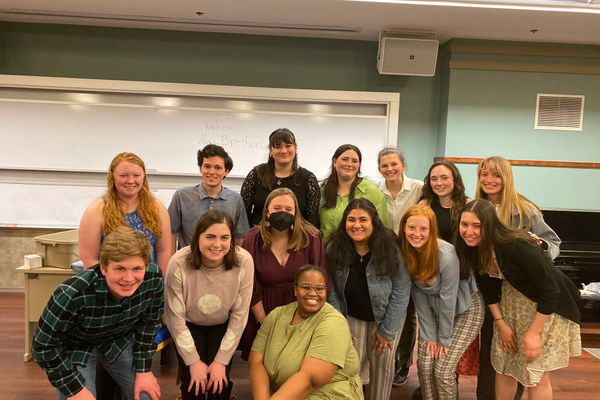One of the things that makes Furman unique is how involved our students are on campus. Vibrant clubs such as the Furman University Student Activities Board, Outdoors Club, and the Fellowship of Christian Athletes can provide rich communities and offer a sense of fulfillment for many students.
Another significant place that students seek community is through Greek life. Many members will say that it’s different here than at a state school. We have delayed rush, allowing students to make friends and become accustomed to college life before going Greek, and the inner politics of sororities and fraternities appear less extreme than those at large state schools in our region.
That may be true, but it doesn’t mean that Furman’s Greek life doesn’t have its problems.
Unlike other clubs, Greek life will always have a significant financial barrier to entry. While it may be less than bigger state schools, for some sororities, potential members still have to fork out around a thousand dollars in dues each year. This isolates a large portion of students who can’t afford to pay for access to these exclusive social circles.
This will inevitably lead to limited class and racial diversity among members, which is perpetuated as new students don’t see themselves represented.
While clubs can provide a sense of belonging, it can be hard to find one that both suits one’s interests and is similarly large and active to Greek organizations. And if a student is not inclined to join Greek Life, they could feel left without a source of consistent community on campus.
In my freshman year, I chose not to join a sorority due to some of these reasons and instead sought a community that would become close as we worked toward a more specific common goal: service.
Alpha Phi Omega, the non-panhellenic, co-ed service fraternity, is more inclusive, less regulated, and allows my social life to remain flexible. Our dues are significantly cheaper, at under $200 a semester, and we have a scholarship to cover them for those who can’t afford to pay.
Nationwide, the group provides more service to campuses than any other organization.
The draw of Greek Life is its exclusivity. It’s being picked. It’s being included. But it comes with a steep price — its exclusivity inevitably leaves others on the sidelines. APO wants anyone and everyone to join, offering a barrier-free organization that can provide community, leadership, and purpose.
Unlike Greek organizations, APO has no evaluation process. In our rush process held in both the Fall and Spring, students will get a chance to get to know the group and decide if the commitment is right for you, rather than being evaluated and potentially “dropped”.
With weekly chapter meetings and required hours for service, fellowship, and leadership, you are guaranteed to see brothers on a consistent basis, unlike many other non-Greek clubs. APO tows the line between a well-attended club and an organized Greek organization. We have “bigs” and “littles” to help new members find a place within the group, which facilitates deeper bonds within the organization. But with a smaller overall membership than a typical Greek organization, the possibility for close friendships extends far beyond one’s “family.”
After I joined with a few friends, I soon found a supportive community that fit my personality and desires more than traditional Greek life could have. My big became a close friend, and I felt connected to a larger purpose and community.
Being a part of this community has enlivened my college experience. But despite its benefits, APO lacks visibility among the Furman community. While sororities advertised themselves heavily in the fall of my freshman year, APO was more elusive. I didn’t know about the group until January. However, the group deserves more recognition on campus as it engages in large-scale service and fosters a diverse and welcoming atmosphere.
Students can attend our information session to meet our members on Monday, Sept. 25 at 7 p.m. in Furman Hall 201 and join the group at our pledge ceremony next Wednesday. In doing so, they will join a community of students with a common goal of service and uplifting one another.
